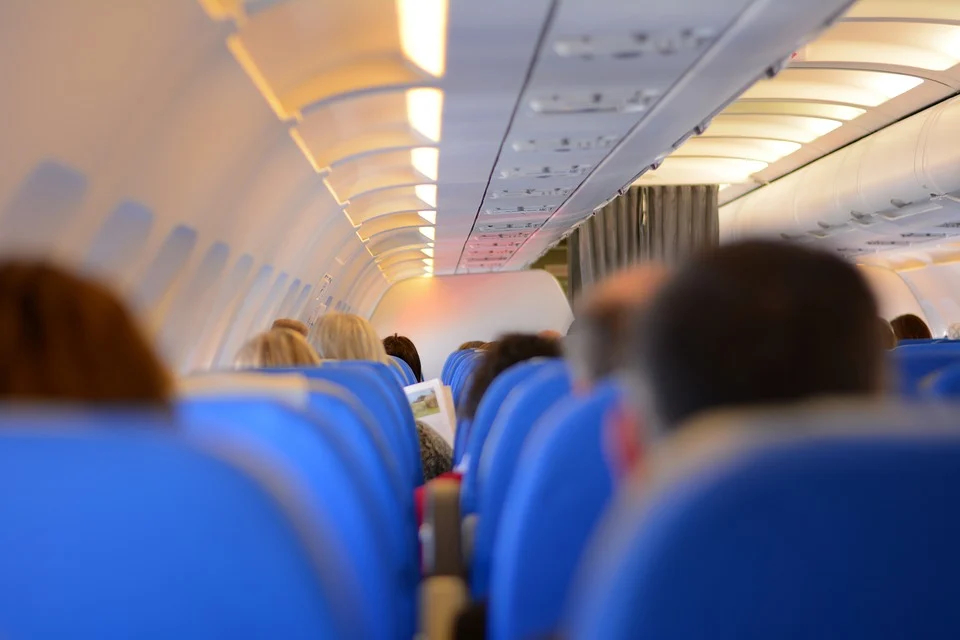The International Air Transport Association (IATA) announced passenger data for July 2022 showing that the recovery in air travel continues to be strong.
Note: We have returned to year-on-year traffic comparisons, instead of comparisons with the 2019 period, unless otherwise noted. Owing to the low traffic base in 2021, some markets will show very high year-on-year growth rates, even if the size of these markets is still significantly smaller than they were in 2019.
- Total traffic in July 2022 (measured in revenue passenger kilometers or RPKs) was up 58.8% compared to July 2021. Globally, traffic is now at 74.6% of pre-crisis levels.
- Domestic traffic for July 2022 was up 4.1% compared to the year-ago period and is now driving the recovery. Total July 2022 domestic traffic was at 86.9% of the July 2019 level. China saw strong month-to-month improvement compared to June.
- International traffic rose 150.6% versus July 2021. July 2022 international RPKs reached 67.9% of July 2019 levels. All markets reported strong growth, led by Asia-Pacific.
“July’s performance continued to be strong, with some markets approaching pre-COVID levels. And that is even with capacity constraints in parts of the world that were unprepared for the speed at which people returned to travel. There is still more ground to recover, but this is an excellent sign as we head into the traditionally slower autumn and winter quarters in the Northern Hemisphere,” said Willie Walsh, IATA’s Director General.
Air Passenger Market in Detail – July 2022
| JULY 2022 (% YEAR ON YEAR) |
WORLD SHARE1 | RPK | ASK | PLF (%-PT)2 | PLF (LEVEL)3 |
|---|---|---|---|---|---|
|
Total Market
|
100%
|
58.8%
|
37.3%
|
11.3%
|
83.5%
|
|
Africa
|
1.9%
|
81.9%
|
48.3%
|
13.9%
|
75.3%
|
|
Asia Pacific
|
27.5%
|
47.5%
|
28.1%
|
10.0%
|
76.4%
|
|
Europe
|
25.0%
|
84.0%
|
48.9%
|
16.6%
|
87.0%
|
|
Latin America
|
6.5%
|
59.2%
|
53.2%
|
3.1%
|
83.1%
|
|
Middle East
|
6.6%
|
176.7%
|
75.3%
|
29.8%
|
81.2%
|
|
North America
|
32.6%
|
26.9%
|
21.2%
|
4.0%
|
88.2%
|
International Passenger Markets
Asia-Pacific airlines posted a 528.8% rise in July traffic compared to July 2021, the strongest year-over-year rate among the regions. Capacity rose 159.9% and the load factor was up 47.1 percentage points to 80.2%.
European carriers saw July traffic rise 115.6% versus July 2021. Capacity rose 64.3%, and load factor climbed 20.6 percentage points to 86.7%, second highest among the regions.
Middle Eastern airlines’ traffic climbed 193.1% in July compared to July 2021. July capacity rose 84.1% versus the year-ago period, and load factor climbed 30.5 percentage points to 82.0%.
North American carriers had a 129.2% traffic rise in July versus the 2021 period. Capacity rose 79.9%, and load factor climbed 19.4 percentage points to 90.3%, which was the highest among the regions for a second month.
Latin American airlines’ July traffic rose 119.4% compared to the same month in 2021. July capacity rose 92.3% and load factor increased 10.5 percentage points to 85.2%.
African airlines saw an 84.8% rise in July RPKs versus a year ago. July 2022 capacity was up 46.7% and load factor climbed 15.5 percentage points to 75.0%, the lowest among regions.
Domestic Passenger Markets
| JULY 2022 (% YEAR O YEAR) |
WORLD SHARE1 | RPK | ASK | PLF (%-PT)2 | PLF (LEVEL)3 |
|---|---|---|---|---|---|
|
Domestic
|
62.3%
|
4.1%
|
3.4%
|
0.5%
|
81.5%
|
|
Dom. Australia
|
0.8%
|
239.7%
|
106.6%
|
33.7%
|
86.0%
|
|
Domestic Brazil
|
1.9%
|
24.2%
|
28.1%
|
-2.5%
|
80.4%
|
|
Dom China P.R
|
17.8%
|
-28.7%
|
-25.2%
|
-3.6%
|
73.0%
|
|
Domestic India
|
2.2%
|
97.8%
|
72.4%
|
9.8%
|
76.4%
|
|
Domestic Japan
|
1.1%
|
104.0%
|
65.1%
|
12.4%
|
65.1%
|
|
Domestic US
|
25.6%
|
0.7%
|
2.1%
|
-1.2%
|
87.1%
|
Brazil’s domestic traffic rose 24.2% in July and have now reached pre-pandemic levels.
India’s domestic RPKs rose 97.8% in July and are now exceeding 81% of 2019 levels.
Air Passenger Market overview – July 2022
| JULY 2022 VS SAME MONTH IN 2019 | WORLD SHARE1 | RPK | ASK | PLF (%-PT)2 | PLF (LEVEL)3 |
|---|---|---|---|---|---|
|
Total Market
|
100%
|
-25.4%
|
-23.6%
|
-2.0%
|
83.5%
|
|
International
|
37.7%
|
-32.1%
|
-32.0%
|
-0.2%
|
85.0%
|
|
Domestic
|
62.3%
|
-13.1%
|
-8.1%
|
-4.7%
|
81.5%
|
The Bottom Line
“Aviation continues to recover as people take advantage of their restored freedom to travel. The pandemic showed that aviation is not a luxury but a necessity in our globalized and interconnected world. Aviation is committed to continuing to meet the demands of people and commerce and to do it sustainably. We have set a goal to achieve net zero CO2 emissions by 2050, which is in line with the targets of the Paris Agreement. Governments will have the opportunity to support our commitment by agreeing to a Long-Term Aspirational Goal (LTAG) of net zero aviation CO2 emissions by 2050 at the upcoming 41st Assembly of the International Civil Aviation Organization (ICAO). With governments supporting the same goal and timeline, we and our value chain partners can move forward with confidence towards a net zero carbon future,” Walsh said.
> View the presentation at 7 September media briefing (pdf)
> Read the latest Passenger Market Analysis (pdf)
> Access transcript of Willie Walsh remarks



